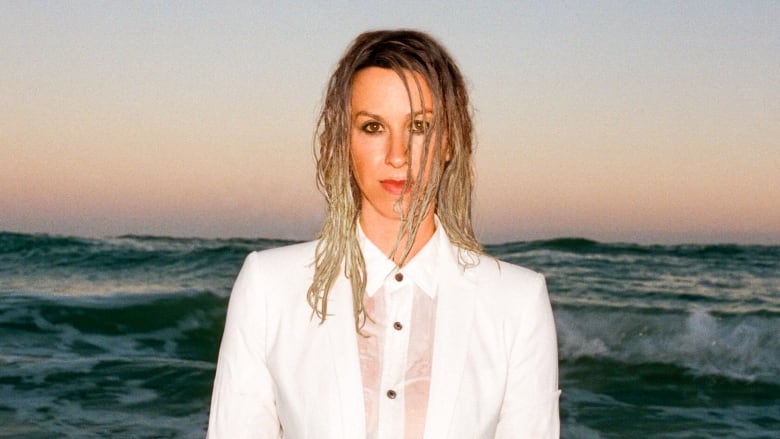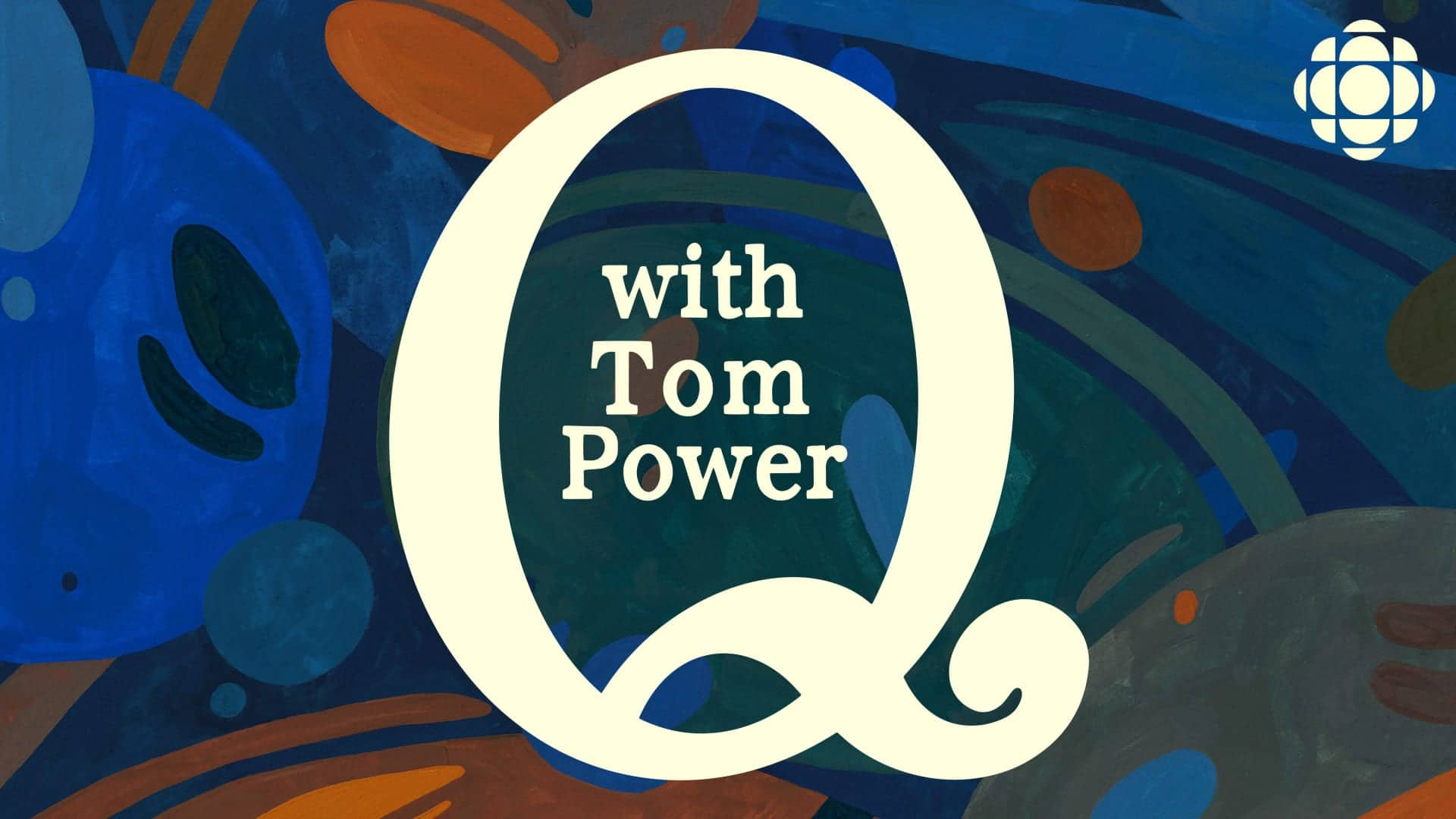Jagged Little Pill at 25: How Alanis Morissette tapped into female rage and changed music for good
'Anger is such a powerful, beautiful emotion that can move worlds,' says Morissette in a new Q interview


Originally published on Oct. 5, 2020
As a teenager, Alanis Morissette always loved people watching. To her, sitting on benches and watching people go by was, as she describes it, "the most entertainment I could even conjure."
But after her landmark album Jagged Little Pill was released on June 13, 1995, things changed — and quickly.
"All of a sudden it turned to the point where I was the watched one. So all the eyeballs came toward me," says Morissette in a feature interview with Q's Tom Power.
In the video for her hit You Oughta Know, Morissette's face was blurred, but the Canadian artist distinctly remembers when the video for Hand in My Pocket was released.
"I remember walking a New York street and all of a sudden, all of these people were following me," says Morissette, who had just turned 21 when the album was released.
"All the normal interactions kind of went the way of all things, and all of a sudden there were things to consider and to protect and to question," she says, reflecting on the pitfalls of sudden fame.
"You have to be like a very advanced, discerning person to figure out what relationship was based on real connection, and who was coming in with an agenda."
'Anger gets such a bad rap'
Now 46, Morissette has sold more than 75 million records worldwide, won seven Grammys and 12 Junos — including two awards for songwriter of the year.
Jagged Little Pill regularly appears on lists of best albums of all time, and a musical based on the album also went to Broadway last fall; the New York Times called it "redemptive, rousing and real."
The anthemic songs continue to stand the test of time a quarter century after they were released, and a big part of their success was that they unapologetically tapped into an artery of raw female emotion — especially anger, says Morissette.
"I think anger gets such a bad rap, because we often equate it with destructive anger — guns and fighting and murder and war," she says.
"But anger itself is such a powerful, beautiful emotion that can move worlds, it can set boundaries, it can help us show up, it can help us vote, it can help us not tolerate certain circumstances anymore.
"So anger itself gets a bad rap, but I love it so much."
'I just couldn't stop crying'
One of the biggest hits on the album was You Oughta Know, a rage-fueled breakup song that has been sung on Broadway, performed by Taylor Swift and become a karaoke staple.
So why does Morissette think has that song in particular endured?
"For me, the devastation and the rage is the combination," says Morissette. "That song was just me being afraid, sad, devastated, raging out of my Zen seat. So basically, when I perform it, I feel like it gives people permission to be devastated, and to feel that entirely."
Morissette also got to feel the full force of the song when she was in rehearsals for the Jagged Little Pill musical, and got to hear it performed.
"During rehearsals and workshops, I was sobbing and weeping. I just couldn't stop crying, listening to these songs being performed, and the musical director Tom Kitt would come up behind me and push my shoulders down because I'd be shaking," remembers Morissette.
"I think the objectivity, but also just really feeling and hearing these songs for what felt like the first time. It wasn't me monologizing them; it was me receiving them. It was pretty amazing."
The musical also pokes fun at the fact that, for 25 years, nitpickers have criticized Morissette for misusing the word "ironic" in the hit song of the same name.
"The malapropism in Ironic really was just it was the perfect thing for so many people to just kick my ass. They were like, 'I'm having a hard time kicking her ass. How can I do it? Oh, yeah, grammar problems," says Morissette with a laugh.
When she wrote the song with Glen Ballard, she adds, they were aware of the error. Of course countless songs misuse grammar, she adds, but for some reason she wasn't afforded the same poetic license.
"The real irony for me is that I've always been the grammar police," she says. "So for me to have my butt kicked was just very humbling and beautiful in that way."
Such Pretty Forks in the Road
Because of COVID-19, both the Jagged Little Pill Broadway musical and a 25th anniversary concert tour have been put on ice, but Morissette has just released her first studio album in eight years, titled Such Pretty Forks in the Road.
Throughout her career, Morissette has been open about her experiences of childhood sexual abuse, eating disorders, depression and trauma, which she has unflinchingly addressed in her music.
On Such Pretty Forks in the Road, the song Reckoning references the trial of her former business manager, who was convicted of embezzling $5 million from the singer over several years.
In Diagnosis, Morissette confronts her experience of postpartum depression, and describes how much better she felt when she understood what was happening.
On The Tonight Show Starring Jimmy Fallon, she also performed a beautiful rendition of her new song Ablaze — which she wrote in honour of her children — from her home with her daughter Onyx in her arms.
Artists are processors by nature, she says, and speaking with therapists and people who have her best interest at heart helped her navigate her trauma — as opposed to crashing and burning as so many music stars have in the past.
"There's not a day that goes by that there's not something moving, that I'm processing or that I'm grieving or that I'm letting go of or I'm just marking and honouring. And there is a resilience that emerges," she says.
"Sometimes I'm white knuckling and I do need to lean; the COVID pandemic time is particularly challenging for those of us who are attempting to work through traumas because it's compounded macro massive trauma, basically. Unrelenting chronic stress is re-traumatization."
'I'll keep writing'
What's more, people pushing down their anger and other emotions is akin to trying to force a beach ball underwater, she says, but it's happening across societies — which only sows more division and anger, especially now.
"We see so much of the acting out and in the world in general — this acting out of divisiveness. It's getting more intense right now, because the stress is high and everyone's cortisol is through the roof or it's collapsed entirely," she says.
"We're all in fight, flight, freeze, collapse, tend and befriend, and we're bound and wound and armoured in this protective animal stance. But the truth of the matter is, the saber-toothed tiger is now in our heads."
These days Morissette is focus on serving, which she says can take forms — volunteering, donating, and supporting people to vote, for example. It also includes making art, which is why she has continued to write and record for more than 25 years.
"The fact that it was supporting people on their unique journeys, and it was a soundtrack of a kind for them, that's what kept me going," says Morissette, who is also recording a meditation album.
The fact that it was supporting people on their unique journeys, and it was a soundtrack of a kind for them, that's what kept me going- Alanis Morissette
"If it were just fame, and it were just that white-hot heat zeitgeist bubble, I don't think I would have been sustainably interested," she explains.
"But because of what was being offered to people in terms of mercy and empathy and validation and understanding and inspiration, I mean, I'll keep writing until I'm dead and gone — and probably after."
WATCH | Alanis Morissette's full interview with Q host Tom Power:
The full interview with Alanis Morissette is available on our podcast, Q with Tom Power. Listen and subscribe wherever you get your podcasts.
Written by Jennifer Van Evra. Interview produced by Vanessa Nigro and Catherine Stockhausen.